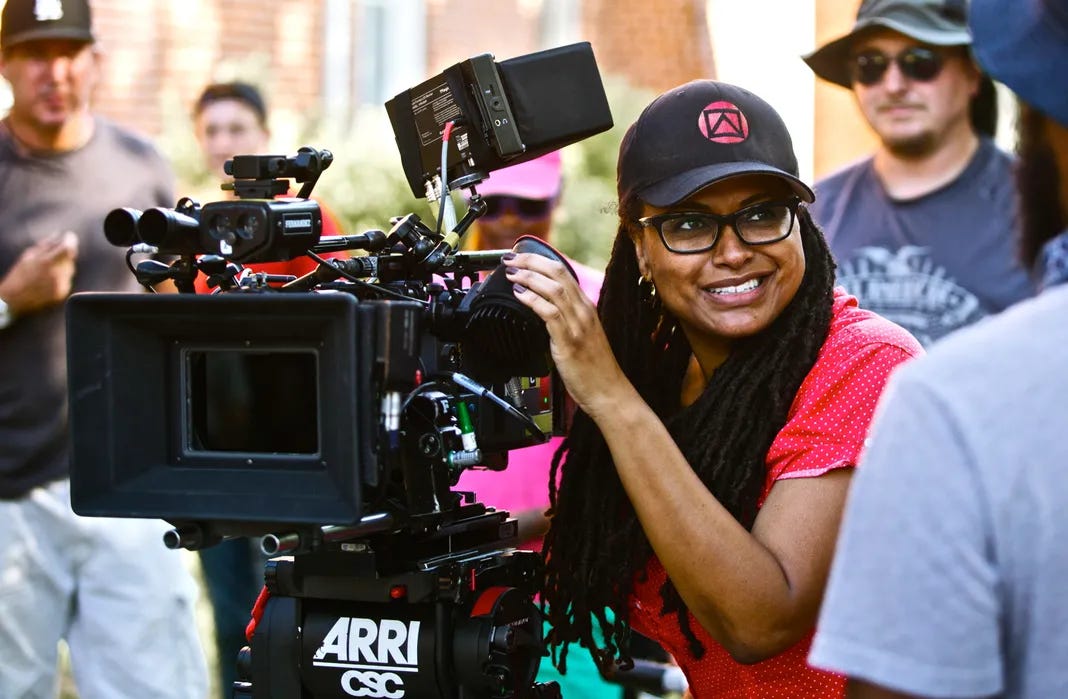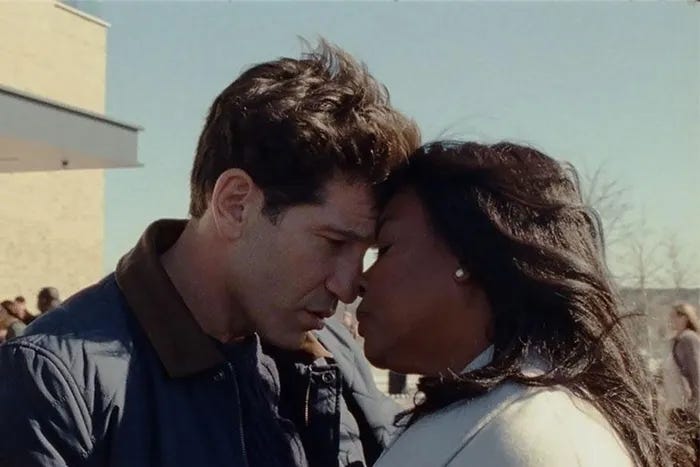Ava DuVernay | In Their Own Words
The multiple Oscar-nominated director discusses her fateful first love for cinema.
Ava DuVernay is a Hollywood trailblazer. The born and bred Angelino was the first Black female director to win Sundance (Middle of Nowhere) and be nominated for best picture at the Oscars and best director at the Golden Globes (Selma). It’s hard to believe she picked up a camera for the first time when she was 32, after years spent forging a successful career as a film publicist.
Much of DuVernay’s work explores injustices that have affected Black communities—including Selma, a historical drama based on the 1965 Selma to Montgomery voting rights marches; drama series When They See Us, about the 1989 Central Park Jogger case, and documentary 13th, which highlighted the disproportionate mass incarceration of people of colour, and was called “the most important film you’ll ever see” by veteran civil rights campaigner Angela Davis. Her new film Origin is a biographical drama that charts the invigorating journey of writer Isabel Wilkinson as she writes Caste: The Origin of Our Discontent.
Keep scrolling for a few snippets of our Issue 4 conversation with Ava—you can find the full article by visiting a-rabbitsfoot.com.
I never thought of [becoming a filmmaker] as a radical, out-of-reach idea. Certainly the mechanics of trying to become a filmmaker at that age without training was a challenge. But the mental gymnastics many people have to do to convince themselves to start was something I hadn’t wrestled with. My mother changed work in the middle of her professional career. She was a high ranking hospital administrator in the human resources department. Then, she decided to move out of California to another state and become a kindergarten teacher instead, which is what she wanted to do. I had that precedent that you can evolve into something else if you want to. So when I was on film sets as a publicist, I got interested in directing. It was specifically on the set of Collateral, by Michael Mann, a film I love to this day. I observed how he was shooting with digital cameras, and the cast was multicultural and diverse. It was right in my backyard in LA. They shot much of it in traditional communities of colour. I felt ignited by what I was observing and decided to try it for myself.
Time is flexible and elastic. It can’t be confined, you know, and so when we have these artificial limits on time it’s just nonsense, but we allow ourselves to be governed by these societal constraints. When you’re in a state of desire, and in the crosshairs of Destiny, all these things can’t be predetermined or dictated by anyone other than you. That’s a miraculous, gorgeous thing.
Preparation is important. But so is learning, and much of what I’ve pursued has had to be learned. There’s no book. You have to actively do it, but at some point you either have to go to film school… or you have to pick up a camera and just start shooting—which is what I did. You have to get your hands dirty. How do you know you’re not competent at something unless you’ve tried?
Every story I’ve told had a triumphant ending—success over adversity. And that’s kind of a through line of the stories. That’s true for Selma. That’s true for When They See Us. The subject matter is dense, but the end of both of those films are upswings. Look at 13th—I tried to end on a place where it’s not just challenging statistics or hard history. It ends with a question to the audience: What will you do? So I try to stay in that place, because a story expands the heart and mind, and gets you thinking about your place in the world, your behaviour, your history, and your future.
Origin is released in US cinemas on 8th December 2023. Read the full interview with Ava here.




